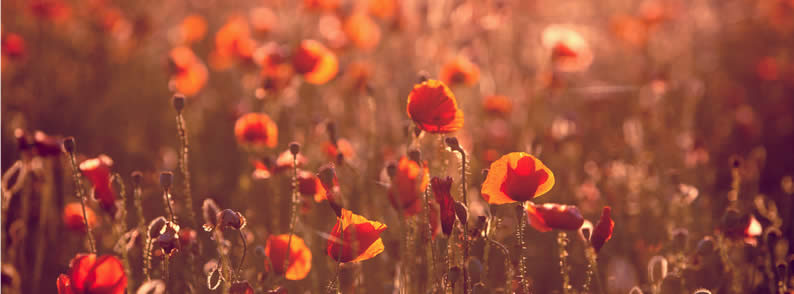Explore Grange Hotels’ Latest Blog Posts and Press Releases
Remembrance Day 2019
What's On - 21-Oct-2019

The Royal British Legion has long hosted a Remembrance Sunday service to commemorate the contribution of British and Commonwealth servicemen. This year it will take place on Sunday the 10th of November 2019.
Starting at 11am, the annual service is once again set to attract public from up and down the country, as well as some well-known faces. The Queen is usually in attendance, along with other members of The Royal Family.
"When you go home, tell them of us and say: for their tomorrow we gave our today."
Remembrance Day 2019 Itinerary
The Remembrance Day service has not changed since 1930. In the morning, attendees will make their way to the Cenotaph in Whitehall, London to pay their respects to those who have given their lives in service to their country.
08:00
Whitehall opens to the public. Space is limited and police security checks are in place, so be sure to arrive early.
09:00
Royal British Legion (RBL) detachments get into formation on Horse Guards Parade and in Whitehall.
10:00
Detachments march out from Wellington Barracks to the Cenotaph.
11:00, the Cenotaph Service
Two minutes of silence is marked by the firing of guns from King's Troop on Horse Guards Parade.
11:25
The Cenotaph Service concludes, and Royal British Legion detachments disperse past the Cenotaph.
12:30
The Nation's Thank You procession commences.
13:30
The Nation's Thank You procession ends.
As with every year, no tickets or passes are needed to watch the ceremony from the pavements along Whitehall and Parliament Street.
There will be plenty of large screens displaying the day's events around the venue. These are located north of the Cenotaph, near the green outside the main Ministry of Defence building, outside the Scotland Office, and south of the Cenotaph on the corner of King Charles Street. So you can rest assured that there are plenty of ways to view the service.
The Origins of Remembrance Day
Armistice Day
On 11th November 1918, an armistice was signed between the Allies and Germany at Compiègne, France, for the cessation of hostilities on the Western Front. This took effect at 11am — the "eleventh hour of the eleventh day of the eleventh month" of 1918.
The first Armistice Day commemoration was held one year later at Buckingham Palace on the evening of 10th November 1919, commencing with King George V hosting a "Banquet in Honour of the President of the French Republic". The first official Armistice Day events were subsequently held in the grounds of Buckingham Palace on the morning of 11 November 1919. This would set the trend for a day of Remembrance for over a century.
The Cenotaph Service
In 1920, the Cenotaph war memorial was unveiled to the world and has been the focal point for Armistice Day ever since. The first ceremony held there was in 1921, and the service we will see on 10th November 2019 will be almost identical to the original.
Armistice Day becomes Remembrance Day
Sadly, the First World War was not the "war to end all wars" that it was hoped to be. As such, Armistice Day is now more commonly known as Remembrance Day, in order to pay tribute to all British and Commonwealth service men and women who have lost their lives in conflict.
The Red Poppy
Red poppy pins are widely sold around the time of Remembrance Day as a token of commemoration for anyone to wear. The history of this symbol stems back to 1915, when Canadian Lieutenant Colonel John McCrae wrote his poem, 'In Flanders Fields'. In the poem, McCrae described poppies on the battle fields; " . . . the poppies blow Between the crosses, row on row . . ." In 1921 The Royal British Legion adopted the poppy as their symbol for Remembrance Day, and launched the Poppy Appeal to help raise money for their charity.
Remembrance Day in 2019
This year, The Royal British Legion has declared that the symbolic poppy pin will now represent more than just the UK's armed forces. It will also serve as a symbol for civilian victims of war and terrorism. This means the poppy will now represent civilians in Nazi Germany, and those who died as a result of the Manchester Arena and London Bridge attacks in 2017.
If you're thinking about visiting the capital this November, take a look at The Grange Hotel's special offers, and book your room at one of our central London venues.